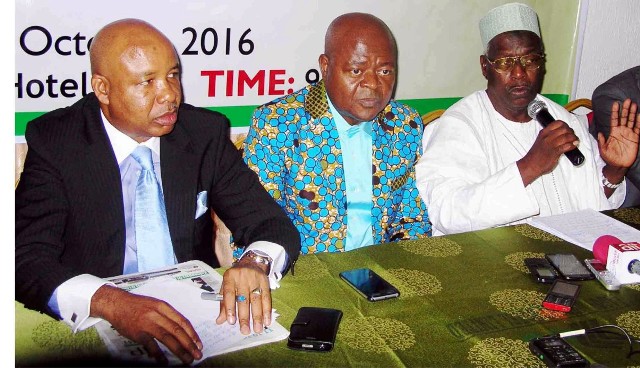Business
Senate Moves To Boost Capital Market

Senate President, Dr. Abubakar Bukola Saraki, urged members of the Senate Committee on Capital Market, to work closely with stakeholders in the sector to reposition the nation’s capital market.
Saraki, according to a statement by his Chief Press Secretary, Sanni Onogu, made the call on Tuesday at a public hearing organized by the Senate Committee on Capital Market on the status of the N90billion unclaimed dividends in securities for Nigerian investors and on a Bill to give legislative framework for the Chartered Institute of Capital Market Registrars.
Represented by the Senate Leader, Senator Ahmad Lawan, the Senate President expressed confidence that the Committee will find legislative safeguards to challenges militating against the capital market.
Saraki said: “It is to be noted that Capital Market exists to provide long-term capital to both the government and corporate bodies for industrial and socio-economic development and at the same time attract returns for investors by way of dividends.
“It is expected that a Chartered Institute of Capital Market Registrars will help set ethical standards and standard professional conduct for members including benchmark and best practices in Nigeria.
“Finally, it is my hope that this Committee whose members were carefully selected will work closely with all stakeholders in this sector to bring back the past glory to the Capital Market.
“I have no doubt that this Committee will succeed in finding legislative antidotes to the challenges in this sector thereby strengthening the economy of this great nation,” he said.
Saraki, however stated that the issue of unclaimed dividends remains quite critical as it has endangered the progress of the Nigeria Capital Market, “an issue among others that has eroded our Investor’s confidence.”
He added: “Investments in the area of shares have dropped abysmally and dividends accruing to investors have come to zero thereby discouraging a lot of new investors from buying shares. The attendant economic and social effects of this development can best be imagined.
“It is therefore on this premise that the Senate at its Plenary Session on the 8th Day of November, 2016, considered and deliberated a motion moved by Senator Muhammad Shittu seeking the “Need to Determine the Status of Unclaimed N90 Billion Dividends in Securities for Nigerian Investors and the circumstances to which it was accumulated.
“The Senate also mandated this Committee by way of the Senate Resolution, to ensure proper verification of the alleged unclaimed dividends, make recommendations which seeks to amend the twelve (12) year ban on Unclaimed Dividends as provided for by section 383 of the Companies and Allied Matters Act (CAMA) 1990,” he said.
Business
Customs Seek Support To Curb Smuggling In Ogun

Business
IFAD: Nigeria Leads Global Push For Youth, Women Investment In Agriculture
Business
Expert Tasks FG On Food Imports To Protect Farmers

-

 Politics2 days ago
Politics2 days agoAPC Releases Adjusted Timetable For Nationwide Congresses, Convention
-

 Business2 days ago
Business2 days agoCustoms Seek Support To Curb Smuggling In Ogun
-
Sports2 days ago
DG NIS Wants NSC Board Constituted, Seeks Increased In Funding
-

 Sports2 days ago
Sports2 days agoSWAN Rivers Set-up Five Functional Committees
-
News2 days ago
Police Bust Kidnapping Syndicate In PH
-
Sports2 days ago
NSC Disburses N200m Training Grants To 26 Athletes
-
Sports2 days ago
‘NTF Will Build On Davis Cup Success For Brighter Future’
-

 Featured2 days ago
Featured2 days agoINEC Proposes N873.78bn For 2027 Elections, N171bn For 2026 Operations

